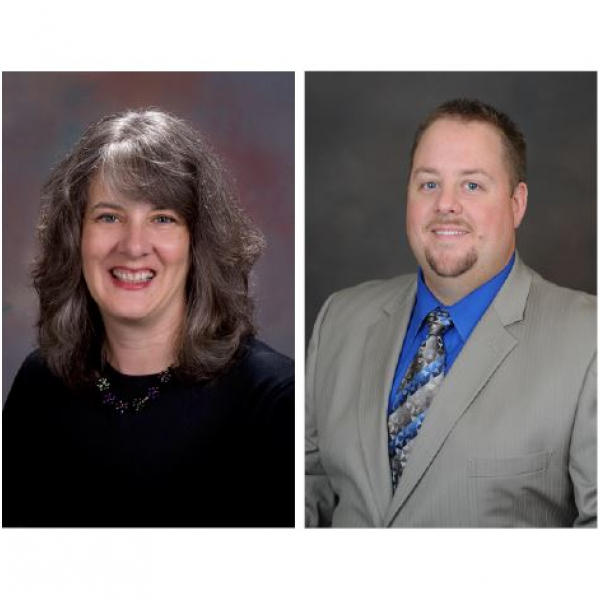Virtual Reality Helps Students Learn Sterile Compounding Skills

Dr. Kimberly Redic, BS, and Dr. Michael Kraft, PharmD’99, BCNSP, have recently received a grant from the Gilbert Whitaker Fund for the Improvement of Teaching.
The Gilbert Whitaker Fund supports faculty who engage in activities that enhance the quality of student learning at the University of Michigan.
Dr. Redic is the Manager of Research Pharmacy at the University of Michigan Health System and Assistant Clinical Professor in the Clinical Pharmacy department at the U-M College of Pharmacy. She teaches sterile product preparation as part of the UM-COP sequence on health-system pharmacy. Dr. Redic has been a practicing pharmacist in a number of settings, including community and academic institutions, veterinary medicine, and most recently in research pharmacy and investigational drug services. She is a member of the UMHHC Cancer Center Pharmacy and Therapeutics Committee and the Department of Pharmacy Services leadership team, as well as an active member of the American Society of Health-System Pharmacists.
Dr. Kraft is currently Clinical Associate Professor of Pharmacy at the U-M College of Pharmacy and Assistant Director of Pharmacy for Education and Research at the U-M Health System (UMHS). Dr. Kraft provides didactic education on several topics, including fluids and electrolyte disorders, acid-base disorders, and parenteral nutrition support. He presents regularly at local, regional, and national conferences on parenteral nutrition and nutrition support, postoperative ileus, and professional development.
A brief overview of their grant application:
There has been a heightened awareness and scrutiny surrounding patient safety related to preparation of compounded sterile products (CSP) following the meningitis outbreak and subsequent patient deaths resulting from CSP prepared by the New England Compounding Center in 2012. In accordance with accreditation standards and in light of the heightened need for enhancing patient safety, pharmacy curricula must develop student competence related to CSP preparation. A survey of preceptors at APPE sites has revealed that 21% of sites did not allow pharmacy students to prepare CSPs, citing liability concerns, and the cost and time associated with training. Effective didactic education and training within colleges of pharmacy can be challenging due to the requirement of adequate laboratory space, faculty requirements, and supplies. Clinical simulation using a virtual reality application has been shown to be a viable alternative to classroom or laboratory learning in healthcare education. This project will be a collaborative effort with the faculty at Purdue University, and will evaluate the impact of using simulated CSP preparation via the 2D application of the Purdue University Virtual Cleanroom© integrated into the UM COP P422: Health-system Pharmacy Practice and Leadership laboratory sections. The specific aim will be to determine whether the 2D virtual cleanroom (2D-VIRT) experience alone or in combination with traditional hands-on CSP preparation (TRAD) improves both pharmacy student knowledge of CSP preparation procedures and techniques as well as student perceptions of learning. Read more.
“An important part of the training of pharmacists is having them learn sterile compounding techniques,” adds Associate Dean Bruce Mueller. “Difficulties in teaching our students sterile compounding include the availability of a qualified sterile compounding space and the costs associated with disposables.”
“We are excited to collaborate with our colleagues at Purdue University on this project. Teaching sterile product compounding to students is both essential and challenging, given constraints of space, time, and materials of a typical college of pharmacy setting. The Purdue Pharmacy Virtual Cleanroom© may be an important method for embracing student learning here at U-M, since it provides real-time feedback to students and affords opportunities for simulated compounding of high-cost or high-risk products (like chemotherapy or controlled substances) that we simply cannot practice in the live classroom setting. It also allows students to practice making products multiple times,” states Dr. Redic.
Congratulations to Dr. Redic and Dr. Kraft on this wonderful news!



